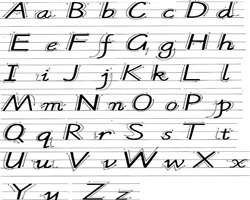英语构词法(表格完美总结版)
构词法-派生词
派生词多数是由词根(Base)加后缀(Suffixes)构成。构成名词的后缀常用的有下面这些:
后缀 | 例词 | |||
-er | thinker | harvester | pain-killer | eye-opener |
-or | actor | sailor | transistor | semi-conductor |
-ist | Marxist | scientist | dentist | Buddhist |
-ee | employee | trainee | referee | trustee |
-ess | hostess | actress | waitress | lioness |
-ian | magician | musician | technician | physician |
-ese | Chinese | Japanese | Portuguese | Pekinese |
-ant | inhabitant | contestant | lubricant | dependant |
-ism | socialism | racism | heroism | optimism |
-ness | illness | happiness | greatness | coldness |
-(a)tion | dictation | preparation | exception | repetition |
-ment | movement | argument | judgement | government |
-ion | expansion | discussion | revision | decision |
-ing | building | feeling | painting | wedding |
-ship | leadership | friendship | scholarship | hardship |
-hood | childhood | falsehood | likelihood | motherhood |
-age | shortage | marriage | leakage | shrinkage |
-ure | failure | pressure | pleasure | seizure |
-dom | freedom | kingdom | martyrdom | officialdom |
-ty | loyalty | cruelty | safety | penalty |
-ity | activity | reality | humidity | possibility |
-y | modesty | difficulty | discovery | inquiry |
-th | truth | warmth | health | length |
-al | refusal | denial | approval | arrival |
-ance | acceptance | allowance | assistance | reliance |
-ence | dependence | confidence | difference | reference |
-ful | Mouthf ul | handful | plateful | busful |
-ry | jewelry | bribery | slavery | rivalry |
-eer | engineer | mountaineer | auctioneer | profiteer |
-ette | cigarette | kichenette | usherette | dinnerette |
-let | booklet | leaflet | piglet | starlet |
-ate | doctorate | consulate | electorate | sulphate |
构成形容词的后缀常用的有下面形式:
后缀 | 例词 | |||
-ful | cheerful | useful | grateful | faithful |
-less | careless | homeless | fearless | motherless |
-ish | childish | reddish | Swedish | selfish |
-ive | active | collective | decisive | destructive |
-ous | courageous | famous | continuous | erroneous |
-able | acceptable | agreeable | applicable | comfortable |
-ic | realistic | poetic | historic | energetic |
-ant | ignorant | significant | defiant | observant |
-ly | friendly | leisurely | lively | daily |
-al | critical | accidental | continual | exceptional |
-y | rainy | handy | thirsty | dirty |
-ent | different | dependent | consistent | obedient |
-ary | imaginary | revolutionary | honorary | secondary |
-some | troublesome | burdensome | lonesome | tiresome |
-like | childlike | womanlike | warlike | manlike |
-en | golden | wooden | earthen | woolen |
-ed | landed | moneyed | cultured | talented |
-ate | fortunate | affectionate | collegiate | passionate |
-an | European | Indian | American | Canadian |
注:有些形容词有-ic和-ial两种词尾,意思不尽相同,例如:
a classic performance 难忘的演出 classical music 古典音乐
a comic masterpiece 喜剧杰作 comical behavior 滑稽的举动
an economic miracle 经济上的奇迹 economical arragement 节约的安排
a historic building 有历史意义的建筑 historical research 史学研究
an electric fan 电扇 electrical energy 电能
此外,还有构成动词、副词和数词的后缀:
后缀 | 例词 | ||||
动词 | -ize | realize | normalize | modernize | mechanize |
-en | widen | hasten | strengthen | lengthen | |
-ify | beautify | simplify | amplify | diversify | |
-ate | hyphenate | activate | motivate | originate | |
副词 | -ly | really | happily | simply | terribly |
-ward | onward | backward | eastward | homeward | |
-wise | likewise | clockwise | otherwise | lengthwise | |
数词 | -teen | fourteen | fifteen | ||
-ty | forty | fifty | |||
-th | ninth | twelfth | |||
前缀(prefiles) 一般不造成词类的转变,而只是引起意思上的变化。前缀中有相当一部分可构成反义词:
前缀 | 意思 | 例词 | ||
un- | 不 | unhappy | untrue | uncomfortable |
做相反动作 | undress | undo | unpack | |
dis- | 不 | dislike | dishonest | disagree |
做相反动作 | disown | disinfect | disconnect | |
in- | 不 | informal | inaccurate | inconvenient |
im- | 不 | immoral | impolite | impossible |
ir- | 不 | irregular | irresistible | irresponsible |
il- | 不 | illegal | illogical | illegitimate |
non- | 不,非 | non-existent | non-conductor | non-interference |
de- | 向相反方向发展 | defrost | decentralize | demobilize |
另外还有一些表示其他意思的前缀:
前缀 | 意思 | 例词 | ||
re- | 重新 | retell | redesign | rewrite |
mis- | 错误地 | misspell | misinform | misunderstand |
co- | 共同 | co-exist | co-operate | co-editor |
counter- | 反 | counteract | counter-attack | counter-revolutionary |
anti- | 反(对),防 | anti-tank | anti-fascist | anti-clockwise |
pro- | 亲 | pro-French | pro-British | pro-Common Market |
over- | 过于 | overdo | over-esitimate | oversimplify |
under- | 不够 | underfeed | under-estimate | underpay |
ex- | 前 | ex-husband | ex-president | ex-serviceman |
pre- | 预先,之前的 | prefabricate | pre-liberation | pre-school |
post- | 在……之后的 | post-war | post-election | post-graduate |
fore- | 预先,前 | foretell | foreleg | forefront |
self- | 自动,自我 | self-starter | self-service | self-correcting |
mal- | 不良的 | maltreat | malfunction | malnutrition |
super- | 超级,上层 | superman | supermarket | superstructure |
sub- | 下面的 | subway | subdivide | subconscious |
inter- | 之间的,互相 | international | interact | inter-continental |
tele- | 远距离的 | telescope | telephone | television |
trans- | 跨越,移 | transatlantic | transplant | trans-Siberian |
pseudo- | 伪,假 | pseudoclassicism | pseudoscientific | pseudointellectual |
arch- | 头号的,大的 | archbishop | arch-enemy | archangel |
micro- | 微型,缩微 | microfilm | microbiology | microcomputer |
mini- | 特小的 | minibus | miniskirt | minicab |
hyper- | 超,过分 | hypertension | hyperactive | hypersensitive |
ultra- | 外,极 | ultra-violet | ultra-left | ultra-conservative |
semi- | 半 | semi-circle | semi-final | semi-conductor |
vice- | 副 | vice-premier | vice-chairman | vice-president |
uni- | 单 | unicycle | unisex | unilateral |
mono- | 单 | monoplane | monologue | monosyllabic |
bi- | 双 | bicycle | bimonthly | bilingual |
tri- | 三 | tricycle | triangle | tripartite |
multi- | 多 | multi-racial | multi-national | multilateral |
poly- | 多 | polygamy | polysemy | polytechnic |
auto- | 白 | automation | autonomous | autobiography |
neo- | 新 | neo-Nazi | neo-classicism | neo-colonialism |
有个别前缀可引起词类的变化。en-可以和名词或形容词构成动词:
enslave endanger enpower enrage enlarge
be-也可以和一些词构成动词:
belittle bedim befriend behead besmear
此外,前缀a-可以:
1)和名词构成形容词或副词:
asleep aboard aside ashore abase
2)和一动词构成另一动词,意思有少许变化:
arise awake arouse abide
还有out-可以和不及物动词构成及物动词:
outshine outlive outrun outvote outwit
也可构成名词如outcome, outlet, outlook, outlaw等。
此外,还有一些次要的前缀。如with-( withdraw, withhold), hemi- (hemisphere, hemicycle), sur- (surcharge, surtax), centi- (centimetre, centigrade), milli-(millimetre, milligram)等.
构词法—转化词
转换构词法(Conversion)就是由一个词类转换为另一词类或几种词类,产生新的词义。如:water(名)水—— water(动)浇水
(一)、转换为名词
1、动词转换为名词
有大量动词可以转换为名词,这些转换的名词一般表示原来的动作或状态,意思没有太大变化,如下面的划线词:
Let me have a try. 我来试一试。
We stopped there for a swim. 我们在那儿停下来游了一会儿泳。
This is for winter wear. Don't make it to tight. 这是冬天穿的,别做的太紧。
I like a quiet read after supper. 晚饭后我喜欢静静地看一会儿书。
这类名词常可和一动词构成短语,表示一个动作,如:
have a look (chat, talk, wash, swim, rest, try, quarrel, smoke, lie, read, dream, run, fight, walk, ride, drink, laugh, dance, bathe, wish, win, fear, love, shave, debate, interview, taste, etc.)
make a study (guess, visit, call, survey, jump, slip, change, search, stay, start, answer, reply, remark, fight, arrest, appeal, purchase, sacrifice, demand, show, deal, an attempt, an attack, an advance, etc.)
有时意思有一定的变化:
He was about the same build as his brother. 他的体形和他哥哥差不多。
Last year's catch was four times that of 1986. 去年的捕鱼量为1986年的四倍。
This was a decisive move. 这是一个决定性的步骤。
They can be used as stock feed. 它们可以用作牲口饲料。
Women have an equal say in everything. 妇女在各方面都有同等的发言权。
He won two games; the other two were draws. 他赢了两局,另外两局打平了。
2、形容词转换为名词
部分形容词特别是表示颜色的形容词常可转换为名词;某些形容词如old, young, poor, rich, wounded, injured等与the连用,表示一类人,作主语时,谓语用复数。
You should be dressed in black at the funeral. 你在葬礼中该穿黑色衣服。
The old in our village are living a happy life. 我们村的老年人过着幸福的生活。
He didn't want to disturb the quiet needed by patients. 他不愿打扰病人需要的安静环境。
He's a dear. 他是个招人喜欢的孩子。
Their jobless total reached a record high since 1940. 他们的失业总人数达到1940年以来的最高峰。
There is only one black in my class. 我们班上只有一个黑人学生。
When is your French oral? 你什么时候上法语口语课?
She is investigating the ancients' conception of the universe. 她在研究古人对宇宙的概念。
He is a natural for the job. 他是一个天生适合干这工作的人。
It is necessary to make a distinction between right wrong. 必须分清是非。
They're running in the final. 他们正在进行(赛跑的)决赛。
Our six-year-old is at school. 我们六岁的孩子在上学了
(二)、转换为动词
1、名词转换为动词。也有相当多名词可以用作动词。
① 许多表示物件的名词可以用作动词来表示动作:
Have you booked your ticket? 你的票订好了吗?
Who chaired the meeting? 谁主持会议?
He pinned great hopes on us. 他对我们寄托了很大希望。
It can seat a thouspeople. 它能坐一千人。
We have mapped out plans for their utilization. 我们制定了使用它们的计划。
It pictures the life of overseas Chinese students. 它描绘海外中国留学生的生活。
By noon he had bagged three hares. 到中午时他已捕获了三只野兔。
The machine bottles 5000 jars of cold cream a day. 这台机器一天能装五千瓶冷霜。
The money was all pocked by corrupt officials. 这钱都进了腐败官吏的腰包。
He hammered a nail into the wall. 他在墙上钉了一只钉子。
② 一些表示身体某部分的名词也可用来作动词:
Hin your exercise-books, please. 请把练习本交上来。
We'll back you up. 我们将作你们的后盾。
Who headed the delegation? 谁任代表团团长?
We should shoulder these responsibilities. 我们应当负起这些责任来。
She fingered the silk gently. 她轻轻地抚摩着这块缎子。
I'm never interested in nosing out the details of someone else's private life. 我从不喜欢探听别人私生活的细节。
They eyed him with suspicion. 他们带着怀疑的目光注视着他。
③ 一些表示某类人的名词也可用作动词:
If so, we shall be badly fooled. 如果这样我们就会上大当。
He insisted on staying up to nurse the child. 他坚持不睡觉来护理这个小孩。
We were hosted by members of the embassy. 我们受到大使馆成员的款待。
Our aim is to save the patient not to doctor him to death. 我们的目的是把他的病治好,而不是把他治死。
The equipment was manned by three workers per shift. 这个设备每一班由三个工人操作。
He has soldiered in France in his youth. 他年轻时在法国当过兵。
The army was officed by brave man. 这支军队由勇敢的人担任军官。
He fathered many inventions. 他有过许多发明。
④ 一些表示其他实物的名词也可用作动词:
Each apartment can house a family of six. 每套房间可以住一户六口之家。
I hope we can room together. 我希望我们能住同一个房间。
This helped to bridge over our difficulties. 这帮助我们度过了困难。
They flowered well but bore little fruit. 它们花开得很好,但果结的不多。
He floored the room. 他给房间装上地板。
We decided to dam the river. 我们决定筑一道拦河坝。
He is busy oiling the bicycle. 他忙着给自行车上油。
He wolfed down three great bowls of rice. 他狼吞虎咽吃了三大碗饭。
The pill is coated with sugar. 药丸外面包有糖衣。
⑤ 一些抽象名词等可用作动词:
Where do swallows winter? 燕子在哪里过冬?
We summered by Lake Geneva. 我们在日内瓦湖畔度过夏天。
For six days nights they battled to save his life. 他们苦战了六昼夜来抢救他的生命。
Through my childhood, I had hungered for education. 我从小就盼望上学。
This so angered us that we beat him up. 这使我们气愤得把他痛打了一顿。
The actual labor force numbered 12000. 实际劳动力有一万两千。
They breakfasted (lunched) at the guesthouse. 他们在宾馆吃了早饭(午饭)。
Over 1000 students stormed into the Senate building. 一千多学生冲进了参议院大楼。
2.形容词转换为动词 有少部分形容词也可用作动词:
The train slowed down to half its speed. 火车速度慢了一半。
This is the chief way of narrowing the difference between them. 这是缩小他们之间差距的主要办法。
Please warm up the dish over the stove. 请把菜放在炉子上加热一下。
The room gradually quieted down. 屋里慢慢静了下来。
Wrongs must be righted when they are discovered. 发现了错误,一定要改正。
Nothing dries sooner than a tear. 什么也没眼泪干的那么快(谚语)。
Shelley was unable to calm her. 雪莱没法让她平静下来。
The results humbled him. 结果使他失了体面。
Don't idle away your time. 不要把时间白白混掉。
They braved the better cold to complete the railway. 他们不顾严寒完成了这条铁路。
Most of these rivers empty into the Pacific Ocean. 这些河流大多流入太平洋。
She busied herself with household work. 她忙着干家务活。
Don't dirty your clothes. 别把你衣服弄脏了。
They finally freed themselves from slavery. 他们最后把自己从奴隶制度下解放出来。
Only thus can we better the life of the people. 只有这样才能改善人民的生活。
He felt himself wronged. 他感到自己受了委屈。
His hair is beginning to grey. 他的头发开始变得花白。
The newspaper had been yellowed by sunlight. 阳光使报纸变黄了。
He lowered his voice. 他放低了声音。
另外有个别其他词可用作动词:
This helped to further their unity. 这帮助促进了他们的团结。(副——动)
Truth will out. 真相总会大白的。(副——动)
3000 workers there downed tools. 那儿三千工人罢工了。(副——动)
Please forward the letter to my new address. 请把信转到我的新地址。(副——动)
She will off do her own things. 她将走掉去干自己的事。(副——动)
I second the motion. 我同意这项提议。(数——动)
(三)个别其他转换的情况:
This is a repeat performance of their old policy. 这是他们的故技重演。(动——形)
They held a fancy dress ball. 他们举行了一次化装舞会。(名——形)
We began to march north. 我们开始向北进军。(名——副)
有个别词在一定的场合下可用作名词:
His argument contains too many ifs buts. 他在说理时“如果”和“但是”用得太多了。
This book is a must for students of electronics. 这是学电子学的人的一本必读书。
Have you considered the why how of the plan? 你考虑过制定这样计划的原因和方式吗?
Have you had a medical yet? 你检查身体了吗?
另外,个别词有时借作动词,来达到一定效果:
Don't keep on sirring me now! 现在不要老叫我“先生”了!
What's the use of all this ohing ahing? 这样“哦”呀“啊”呀有什么用?
(四)通过读音转换
有一些词可以词形不变用作另一词类,但重音发生变化。较常见的是一些双音节词,作动词时重音在后,作名词时重音在前:
动词 | 名词 | |
accent | /æk'sent/ 重读 | /'æksƏnt/ 重音 |
combine | /kƏm'bain/ 合并 | /'kƆmbain/ 康拜因 |
compress | /kƏm'pres/ 压紧 | /'kƆmpres/ 止血垫布 |
conduct | /kƏn'dʌct/ 指挥,导电 | /'kƆndƏct/ 行为 |
conflict | /kƏn'flikt/ 冲突 | /'kƆnflikt/ 冲突 |
contest | /kƏn'test/ 争夺,竞争 | /'kƆntest/ 比赛 |
contrast | /kƏn'træst/ 形成对比 | /'kƆntræst/ 对比 |
convict | /kƏn'vikt/ 定罪 | /'kƆnvikt/ 囚犯 |
digest | /di'ʤest/ 消化 | /'daiʤest/ 摘要,文摘 |
discount | /dis'kaunt/ 打折扣 | /'diskaunt/ 折扣 |
escort | /i'skƆ׃t/ 护送 | /'eskƆ׃t/ 护送人 |
export | /ik'sp Ɔ׃t/ 输出,出口 | /'eksp Ɔ׃t/ 出口 |
extract | /ik'strækt/ 提取 | /'ekstrækt/ 提取物 |
ferment | /f Ə׃'ment/ 发酵 | /'f Ə׃ment/ 酵素 |
import | /im'pƆ:t/ 进口,输入 | /'impƆ׃t/ 进口 |
misprint | /mis'print/ 印错 | /'misprint/ 印错处 |
increase | /in'kri:s/ 增加 | /'inkris/ 增加 |
insult | /in'sʌlt/ 侮辱 | /'insʌlt/ 侮辱 |
perfume | /p Ə'fju:m/ 撒香水,使香 | /'p Ə׃fju:m/ 香水,香 |
permit | /p Ə'mit/ 准许,允许 | /'p Ə׃mit/ 许可证 |
present | /pri'zent/ 赠送,上演 | /'preznt/ 礼物 |
produce | /prƏ'dju:s/ 生产 | /'prƆdju:s/ 农产品 |
progress | /prƏ'gres/ 前进,进展 | /'prƏugres/ 进步,进展 |
protest | /prƏ'test/ 抗议 | /'prƏutest/ 抗议 |
rebel | /ri'bel/ 造反,反抗 | /'rebl/ 造反者,起义者 |
record | /ri'kƆ׃d/ 记录,录音 | /'rekƆ׃d/ 记录,唱片 |
refill | /ri:'fil/ 加(油) | /'ri:fil/ 笔心 |
refuse | /ri'fju:z/ 拒绝 | /'refju:s/ 垃圾 |
reject | /ri'ʤekt/ 拒不接受 | /'ri:ʤekt/ 废品 |
survey | /sƏ'vei/ 勘察,考察 | /'s Ə׃vei/ 勘察,考察 |
suspect | /sƏ'spekt/ 怀疑,疑心 | /'sʌspekt/ 嫌疑犯,有嫌疑的人 |
torment | /tƆ׃'ment/ 使痛苦,折磨 | /'tƆ׃ment/ 痛苦,苦恼 |
transfer | /træns'f Ə׃/ 转学,调往 | /'trænsf Ə׃/ 转送,过户 |
transport | /træs'pƆ׃t/ 运输,运送 | /'træspƆ׃t/ 运输(舰) |
另外也有个别词,作形容词时重音在前,作动词时重音在后:
absent | /'æbsƏnt/ 缺席的 | / Əb'sent/ 缺席 |
abstract | /'æbstrækt/ 抽象的 | /Əb'strækt/ 提取(金属) |
perfect | /'pƏ׃fikt/ 完美的 | /pƏ'fekt/ 使完善 |
合成构词法表解
由两个或更多的词合成一个词,叫合成词。合成词在英语中是比较活跃的。
一、合成形容词
1、构成。
构成方式 | 例词 | |
形容词+名词+ed | noble-minded 高尚的 | good-tempered 脾气好的 |
形容词+现在分词 | good-looking 好看的 | fine-sounding 动听的 |
副词+现在分词 | hard-working 勤劳的 | far-reaching 深远的 |
名词+现在分词 | peace-loving 热爱和平的 | epoch-making 划时代的 |
名词+过去分词 | state-owned 国营的 | heartfelt 由衷的 |
副词+过去分词 | well-known 著名的 | widespread 广泛流传的 |
形容词+名词 | large-scale 大规模的 | high-class 高级的 |
名词+形容词 | duty-free 免税的 | airsick 晕飞机的 |
另外还有一些其他方式构成的合成形容词,如:
over-all( plan) 总的(计划) ever-victorious 常胜的
all-round 全面的 per-mu (yield) 每亩(产量)
ready-made 现成的 everyday 日常的
first-rate 第一流的 face-to-face 面对面的
happy-go-lucky 无忧无虑的 out-and-out 彻头彻尾的
2、句法作用
句法作用 | 例 句 |
(多数用作)定语 | This is a track-laying machine. 这是一台铺轨机。 That's the quick-service counter. 这是快餐部。 What they need is a down-to-earth spirit. 他们需要的是求实精神。 |
(有些也可用作)表语 | Are you airsick? 你晕飞机吗? Now all the fishing boats are radio-equipped. 现在所有的渔船都装了无线电。 He is lively outgoing. 他活泼开朗。
|
二、合成名词
1、构成
构成方式 | 例词 | |
名词+名词 | silkworm 蚕 | bloodtest 验血 |
形容词+名词 | double-dealer 两面派 | shorth速记 |
动名词+名词 | waiting-room 候车室 | sleeping-pills 安眠药 |
动词+名词 | pickpocket 扒手 | break-water 防水堤 |
名词+动名词 | handwriting 书法 | sun-bathing 日光浴 |
动词+副词 | get-together 联欢会 | break-through 突破 |
副词+动词 | downfall 垮台 | outbreak 爆发 |
另外还有一些以其他方式构成的合成名词,如:
well-being 福利 commander-in-chief 总司令
good-for-nothing 无用之人 touch-me-not 凤仙花
go-between 中间人 ,媒人 by-product 副产品
2、句法作用
合成名词可用作主语、宾语等:
句法作用 | 例 句 |
主语 | Sightseeing took up the whole morning. 游览观光占去了 整个上午。 |
宾语 | We walked till we reached the cross-roads. 我们一直走到 十字路口。(动词宾语) No smoking during take-off. 起飞时不要抽烟。(介词的宾语) |
三、合成动词
1、构成
名词+动词 | eavesdrop 偷听 | sleep-walk 梦游 |
副词+动词 | overthrow 推翻 | undergo 经历 |
形容词+动词 | white-wash 粉刷 | blacklist 列入黑名单 |
2、句法作用
合成动词作谓语:
句法作用 | 例 句 |
谓语 | It will be air-dropped tonight. 这个将于今晚空投下去。 They are now mass-producing this instrument. 他们已经在大批生产这种仪器了。 |
(四)合成副词、代词
myself 我自己(pron.) | everything 一切(pron.) | whatever 不管是什么(pron.) |
maybe 也许(adv.) | forever 永远(adv.) | whole-heartedly 全心全意地(adv.) |
moreover 而且(adv.) | however 但是(adv.) | nevertheless 尽管如此(adv.) |
2、句法作用
合成代词作主语、宾语、表语,合成副词作状语
句法作用 | 例句 | |
合成代词 | 主语 | Everything goes well. 一切顺利 |
宾语 | I learn English by myself. 我自学英语。
| |
表语 | There is something wrong with the car. 这车有问题。 | |
合成副词 | 状 语 | She greeted them warm-heartedly. 她热情地和他们打招呼。
|
四、合成词的连字号
在构成合成词时,是否加连字号,是一个麻烦问题。有的需加连字号,如word-formation, letter-writing, boat-ride;有时不加连字号,如:washing machine, dance hall, book review;有时甚至连写,如:handwriting, haircut, input。有时不同字典会有不同处理法,总的说来美国英语中连字号比英国英语用得少。比较现实的办法是注意观察和多查字典。由三个以上词构成的合成词一般都加连字号,如a state-of-the-art aircraft design(最新式的飞机设计)。
五、学会用构词法猜测词义
合成词数量是很大的。有时一个名词可以构成许多合成词。以hand为例,就可构成:
handbag 手提包 | handball 手球 | hand-borrow 手推车 |
handbill 传单 | handbook 手册 | handcart 手推车 |
handcuffs 手铐 | hgrenade 手榴弹 | hand-made 手工做的 |
handmaid 使女 | handout 施舍物 | horgan 手摇风琴 |
hand-picked 精选的 | hpump 手压泵 | handshake 握手 |
handkerchief 手绢 | handwriting 书法 | handvote 举手表决 |
有的词构成的合成词就更多了,这样的合成词详细一些的词典是会收入的。还有一些合成词是词典中查不到的,是由作者或说话人根据情况临时造的。对于这样的合成词,我们要根据我们所学的词汇知识,通过上下文学会猜测它的含义。如:
Some people adopted a wait-and-see policy at the beginning. 开始时有些人采取了观望态度。
With your nothing-can-be-done attitude, you can't hope to accomplish anything. 抱这种“无法可想”的态度,就什么也干不成。





 。
。